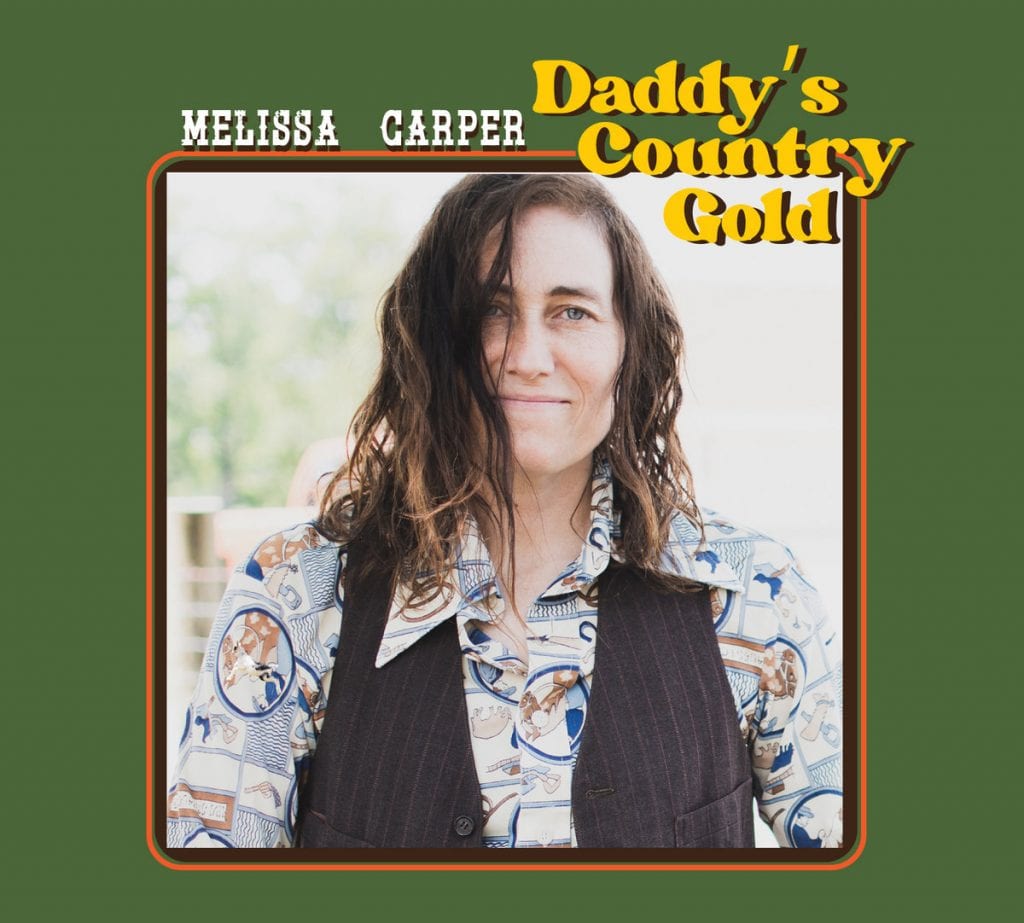Melissa Carper Brings Classic Country into Modern Times on ‘Daddy’s Country Gold’

On Daddy’s Country Gold, Melissa Carper demonstrates why the Great American Songbook has been so enduring. While Carper’s effortless bass lines and her band’s elegant piano accents recall an era we now call “classy,” it’s Carper’s ingenious songwriting that takes the spotlight. Daddy’s Country Gold isn’t simply an easygoing album with a vintage sound; for Carper, it’s an effort to retrieve stories deliberately buried in the past.
The album’s opener, “Makin’ Memories,” is an astonishing thesis statement. With a laidback swing, the narrator announces that they intend to have a good time. But as the song uncoils, the narrator becomes less reliable:
What is that word I’m looking for?
I learned to say it back when I was three
It starts a C
(Kitty-cat/Cornbread)
…Candy!
Yeah, that was her name!
Is the narrator experiencing dementia? An unreliable drunk? What does it mean to make memories? Sure, to experience life to its fullest, but are our memories reliable? In this song, Carper suggests that she is the one creating memories out of whole cloth, telling the stories of people who may or may not have existed. Memories and forgetfulness are laced throughout the album, suggesting that Carper is trying to make a point about the past while appropriating its music. By using sounds straight from the past, she is queering history.
It’s safe to say Carper knows what she’s doing. After a childhood devouring her parents’ vintage country records and playing in their band, she attended University of Nebraska on a music scholarship and dove into studying early jazz. After stints in New Orleans, New York, and Austin, she’s a member of Arkansas’ Sad Daddy, as well as the duo Buffalo Gals with her bandmate and girlfriend Rebecca Patek. Carper knows the canon and is using Daddy’s Country Gold to expand it.
“My Old Fashioned Gal” is the most overt example of this. Thanks to producer Andrija Tokic’s time machine at his Bomb Shelter studio, the song feels like it could be at home on your grandparents’ vinyl. Except in that era, any reference to queer romance was either heavily coded or an object of derision. The song is a sweet and straightforward love song, but it seeks to correct an omission in the historical archive, and for that reason, its power lies far beyond its content. (The song “Would You Like to Get Some Goats With Me” has a more modern sensibility, and, well, let’s just say that stereotypes often hold a kernel of truth.)
It’s a tricky thing that Carper has done. She clearly revels in recreating the music of her heroes, carefully preserving the sense of romance and immediacy of the old classics. Yet by bringing her own experiences into the canon, she is unearthing a history that includes so many more of us, finally allowed to speak out through memories forgotten due to silence and taboo.




